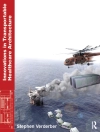Ph D Dr Sc A. Kaklauskas is a professor at Vilnius Gediminas Technical University, in Lithuania; Director of the Research Institute of Smart Building Technologies; Head of the Department of Construction Economics and Property Management; laureate of the Lithuanian Science Prize; member of the Lithuanian Academy of Sciences and editor of Engineering Applications of Artificial Intelligence, an international journal. He contributed to nine Framework programme projects and participated in over 30 other projects in the EU, US, Africa and Asia. The Belarusian State Technological University (Minsk, Belarus) awarded him an Honorary Doctorate in 2014. His publications include nine books and 132 papers in Web of Science Journals. Fifteen Ph D students successfully defended their theses under his supervision. The Web of Science H-Index of Prof. A. Kaklauskas is 21. Web of Science Journals have cited him 1594 times. His areas of interest include life cycle analyses of built environments, energy, climate change, resilience management, healthy houses, sustainable built environments, big data analytics, intelligent decision support systems, intelligent tutoring systems, intelligent library, internet of things, etc. A thorough description of a built environment’s life cycle (brief; design; raw material extraction, transport and processing; construction materials production and distribution; construction; use, repair and maintenance; demolition and disposal, reuse, or recycling analysis) is difficult to procure. A building and its environment comprise a complex system based on its technical, technological, economical, social, cultural, ecological and other aspects. All sub-systems influence the total efficiency performance. The interdependence between subsystems also plays a significant role. This monograph’s research objective is the life cycle of a built environment along with its interested parties striving to attain their goals in the micro-, meso- and macro-environments that make an integral whole. Comprehensive research of this required development of new methods for the multiple criteria analysis of a project that would enable a user to assess its quantitative and qualitative aspects thoroughly. The diversity of the factors under assessment corresponds to various ways for presenting data needed for decision making. Various researches on the life cycle of a built environment and/or its composite parts at micro-, meso- and macro-levels are under global development. Such researches analyze energetic, technical, technological, economic, legal/regulatory, innovative and microclimatic aspects. However, they ignore the social, cultural, ethical, psychological, emotional, religious and ethnic aspects of a built environment’s life cycle. It is notable that not one researcher from different countries analyzed the life cycle of a built environment and its stages in the way the authors of this investigation have considered them. Here, the authors also involve the stakeholders in the life cycle as well as the micro-, meso- and macro-environments that have particular impact on making an integral whole. This monograph contains detailed revisions of the research along with theoretical and practical tasks for analyzing the life cycle of a built environment and includes presentations of distinctive examples. The concept of a modern life cycle of a built environment as a model is discussed. The theoretical and practical analyses presented in this monograph verify that intelligent decision support systems allow different stakeholders to achieve improved work quality results and productivity. An organized creative team of interested groups can produce a life cycle of a built environment that considers qualitative societal aspects to a greater degree. Realistically, most of a built environment life cycle will have both positive and negative features. The mission is to arrive at an equilibrium of pros and cons to optimize the life cycle of a built environment by a system of qualitative and quantitative criteria. Integration of intelligent decision support systems in the life cycle of a built environment is undoubtedly one step in the right direction. Here, the knowledge relevant to the development of a built environment life cycle appears by its economic, legal, technological, technical, organizational, social, cultural, ethical, psychological, emotional, religious and environmental terms, as well as its managerial implications. References to the most modern sources of scientific literature worldwide are also included. The readers targeted for this monograph include researchers, MSc and Ph D civil engineering students and parties involved in construction management and real estate development. Additionally, the book could be useful for other scholars along with MSc and Ph D students of economics, management and other areas of expertise.Target Audience:The readers targeted for this monograph include researchers, MSc and Ph D civil engineering students and parties involved with construction management and real estate development. Additionally the book could be useful for other scholars along with MSc and Ph D students of economics and management and other areas of expertise.
Arturas Kaklauskas
Analysis of the Life Cycle of a Built Environment [PDF ebook]
Analysis of the Life Cycle of a Built Environment [PDF ebook]
यह ईबुक खरीदें और 1 और मुफ़्त पाएं!
स्वरूप PDF ● पेज 275 ● ISBN 9781634855334 ● संपादक Arturas Kaklauskas ● प्रकाशक Nova Science Publishers ● प्रकाशित 2016 ● डाउनलोड करने योग्य 3 बार ● मुद्रा EUR ● आईडी 7226945 ● कॉपी सुरक्षा Adobe DRM
एक DRM सक्षम ईबुक रीडर की आवश्यकता है












